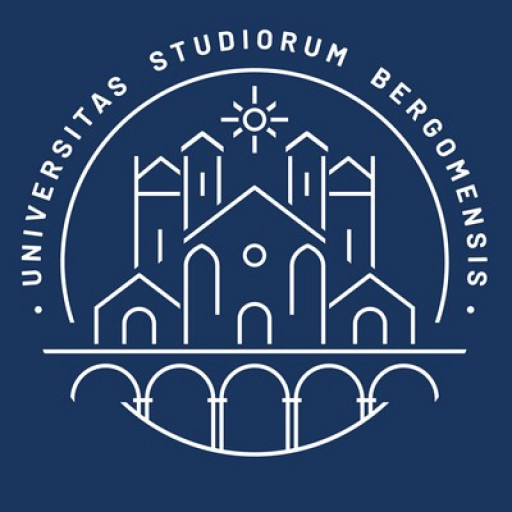The Bachelor of Human Rights at Curtin University is a comprehensive undergraduate program designed to equip students with a deep understanding of human rights principles, international laws, and social justice issues. This dynamic degree offers a multidisciplinary approach, integrating perspectives from law, politics, history, and ethics to prepare graduates for meaningful careers in advocacy, policymaking, and human rights enforcement across various sectors worldwide. Throughout the course, students will analyze the historical development of human rights, explore contemporary challenges such as inequality, discrimination, and social exclusion, and develop practical skills necessary for effective advocacy and human rights activism. The program emphasizes critical thinking, ethical reasoning, and an understanding of the cultural and legal contexts impacting human rights issues both locally and globally. Students will have opportunities to engage with case studies, participate in internships, and collaborate with human rights organizations to gain real-world experience. The curriculum covers key areas including international human rights law, human rights and humanitarian intervention, Indigenous rights, refugee rights, and gender equality, providing a well-rounded foundation for future professionals dedicated to promoting justice and safeguarding fundamental freedoms. Graduates of the Bachelor of Human Rights will be well-positioned for careers in government agencies, non-governmental organizations, international institutions, or as human rights consultants, policy advisors, and researchers. The program aims to foster committed, informed individuals who are passionate about fostering positive social change and upholding the dignity and rights of all people around the world.
The Bachelor of Human Rights at Curtin University offers students a comprehensive understanding of the fundamental principles and global challenges related to human rights issues. This program is designed to equip students with the knowledge, skills, and critical thinking abilities necessary to promote and protect human rights in diverse contexts. Throughout your studies, you will explore topics such as international human rights law, social justice, ethics, policy development, advocacy strategies, and the role of institutions in safeguarding rights. The curriculum combines theoretical frameworks with practical applications, enabling students to analyze complex human rights dilemmas and develop effective solutions. You will have opportunities to engage with real-world case studies, participate in internships, and collaborate with organizations working in human rights advocacy, giving you valuable hands-on experience. The program also emphasizes intercultural awareness, diversity, and inclusion, preparing graduates to work effectively in multicultural environments and contribute meaningfully to social change. By completing this degree, students can pursue careers in NGOs, government agencies, international organizations, human rights commissions, legal firms, or continue their education through postgraduate studies. Curtin's focus on social justice and global development ensures that graduates are well-equipped to influence policy, raise awareness, and champion human dignity worldwide. Emphasizing research and ethical considerations, the Bachelor of Human Rights fosters a committed and informed approach to addressing pressing human rights issues locally and globally. With flexible study options and dedicated academic support, this program is ideal for students passionate about making a positive difference in society and upholding the universal values of dignity, justice, and freedom for all.
The Bachelor of Human Rights at Curtin University is designed to provide students with a comprehensive understanding of human rights issues, policies, and laws. The program requirements typically include completing a set of core and elective courses that encompass various aspects of human rights theory and practice. Students must undertake foundational units in human rights history, international human rights law, and ethical considerations related to human rights advocacy. Practical experience components, such as internships or community engagement projects, are often integrated to enhance real-world understanding. To graduate, students usually need to accumulate a specified number of credit points through successful completion of these courses, which may include coursework assessments, essays, presentations, and examinations. The program emphasizes interdisciplinary perspectives, drawing from politics, law, sociology, and international relations, to prepare students for careers in advocacy, policymaking, legal practice, or research related to human rights issues globally and locally. Additionally, students may be required to complete a capstone project or thesis that demonstrates their ability to analyze complex human rights challenges and propose viable solutions. Participation in seminars, workshops, and guest lectures from professionals in the human rights sector is also encouraged to foster a deeper understanding of current issues and networks within the field. The program aims to develop critical thinking, advocacy skills, cultural competence, and a strong ethical framework. Overall, the program requirements at Curtin are structured to ensure students gain both theoretical knowledge and practical skills, enabling them to contribute effectively to advancing human rights in diverse contexts.
The Curtin University offers a comprehensive range of financing options for students enrolled in its Human Rights programs, designed to make higher education more accessible and affordable. Domestic students can access the Commonwealth Supported Place (CSP) scheme, which significantly reduces the tuition fees they are required to pay, with the Australian Government covering the remaining costs. This scheme is available to eligible students and is designed to support those pursuing undergraduate degrees related to Human Rights, ensuring financial barriers are minimized. For international students, the university provides a variety of scholarships and grants that help offset tuition fees and other associated costs. These scholarships are awarded based on academic merit, financial need, or specific criteria related to the program, such as commitment to human rights advocacy or community service.
In addition to scholarships, Curtin University offers governmentloan options such as FEE-HELP for Australian citizens and eligible residents, which allows students to defer their tuition payments, repaying the loans through their income once they reach a certain threshold. This system provides flexibility and financial relief, enabling students to focus on their studies without immediate financial pressure. Curtin also provides information about external funding sources, such as private scholarships and sponsorship programs from non-governmental organizations dedicated to human rights work. These funding sources can be highly competitive but are valuable resources for students seeking additional financial support.
The university encourages students to explore a range of financial planning tools and resources, including payment plans and financial counseling services, to manage their education expenses effectively. International students are advised to consider additional expenses, such as visa fees, health insurance (Overseas Student Health Cover), and accommodation costs, which can be funded through personal savings, family support, or external scholarships. Curtin University's commitment to accessible education means regularly updating and improving its support services, ensuring students are well-informed about financial aid opportunities. Overall, the financing options at Curtin University aim to reduce financial barriers, promote equal opportunities, and support students throughout their educational journey in the Human Rights program.
The Bachelor of Human Rights at Curtin University offers students a comprehensive understanding of the fundamental principles and complex issues surrounding human rights in both local and global contexts. This program is designed to equip students with critical thinking, analytical skills, and a deep awareness of the social, political, legal, and ethical dimensions of human rights. Throughout the course, students explore topics such as social justice, equality, discrimination, and various human rights frameworks, including international treaties and national legislation. The program emphasizes practical skills, encouraging students to undertake research, policy analysis, and advocacy initiatives aimed at promoting and defending human rights worldwide.
Curtin's Human Rights program features a multidisciplinary approach, integrating perspectives from law, politics, sociology, and international relations. Students have the opportunity to learn from experienced educators and practitioners involved in human rights work, gaining insights into current issues and strategies for effective intervention. The curriculum includes both theoretical coursework and practical placements, allowing students to apply their knowledge in real-world settings. These placements can be undertaken with NGOs, government agencies, and international organizations, providing invaluable experience and professional networking opportunities.
As part of their studies, students engage with contemporary human rights challenges such as refugee policies, Indigenous rights, gender equality, and freedom of expression. The program fosters a global outlook, preparing graduates to work in diverse environments and to understand the implications of human rights issues across different cultures and legal systems. Moreover, many graduates of the program pursue careers in advocacy, policy development, international law, or social justice activism, contributing to positive change at various societal levels.
Curtin University is renowned for its commitment to social justice and student-centered learning. The Human Rights program incorporates innovative teaching methods, including case studies, debates, simulation exercises, and community engagement projects. Students are encouraged to develop critical perspectives and become active, responsible citizens committed to human rights principles. Additionally, the university provides dedicated support services, facilitating student success and fostering an inclusive learning environment.
Overall, studying Human Rights at Curtin University prepares students to become informed and effective advocates for justice and equality, with a thorough understanding of the legal and ethical considerations involved in protecting and promoting human rights worldwide. The program’s blend of academic excellence, practical experience, and social impact makes it an attractive option for individuals passionate about creating a fairer and more equitable society.









